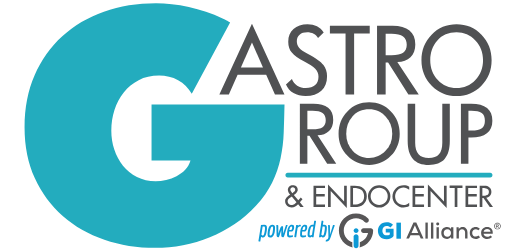Capsule Endoscopy in Louisiana
What is a small bowel capsule endoscopy?
A small bowel capsule endoscopy is a procedure where a pill-sized capsule, (which contains a camera and battery), is ingested by the patient and is then utilized to capture a series of photos of the patient’s small bowel or intestine. An estimated 60,000 pictures are taken. When put together they make a “movie” of the patient’s small intestine.
At GastroGroup & Endocenter, a PillCam endoscopy helps your doctor determine the cause for recurrent or persistent symptoms such as abdominal pain, diarrhea, bleeding or anemia in most cases where other diagnostic procedures failed to determine the reason for your symptoms. In certain chronic gastrointestinal diseases, the method can help to evaluate the extent to which your small intestine is involved or to monitor the effect of therapeutics.
Contact our gastroenterology specialists in Louisiana to request a capsule endoscopy to help ensure your intestinal health is preserved.

What should my expectations be before my capsule endoscopy?
You will be given clear directions from your GI physician regarding the required preparation for an upcoming capsule endoscopy. In most situations, patients will be advised to eat as they normally do the day prior to the exam. Patients will likely receive instruction to refrain from consuming anything by mouth any later than 7 p.m. the night before the capsule endoscopy. It is of the utmost importance to follow the directions provided to you by your specialist. There will also be additional directions in regard to your medications. In most cases, your medications will be resumed as usual a few hours after the pill capsule is ingested. However, in specific situations, such as in patients on blood thinners (such as aspirin, Coumadin®, Plavix®, warfarin, and anti-inflammatories) and in those with diabetes, specialized instructions will be provided.
What happens on the day of the capsule endoscopy procedure?
You will be directed to enter the office or endoscopy center 30 minutes before your appointed exam. This is to provide time to fill out patient forms and any preparation for the capsule endoscopy procedure. The staff will prepare you for the examination by placing a belt that contains sensors across your abdomen. The PillCam endoscope is ingested and passes naturally through your digestive tract while transmitting video images to a data recorder worn on a belt for approximately eight to twelve hours as directed by your provider.
You will be able to eat four hours after swallowing the capsule unless your doctor instructs you otherwise. The capsule is disposable and passes naturally with your bowel movement. You should not feel any pain or discomfort during capsule excretion. After the eight-hour timeframe, you will return to the endoscopy office and the vest can be removed. To hear more about receiving a capsule endoscopy in Louisiana, please request an appointment with one of our gastroenterologists today.
When will I get my results from my capsule endoscopy?
When the procedure is complete, the images retrieved from the capsule will be downloaded to a software program that produces a movie of your small intestine. It may take your doctor a number of hours to carefully view this movie.
You will need to return to the office to return the equipment (waist belt, data recorder, and battery pack). The equipment must be returned no later than 10 AM on the day following the procedure. The images acquired during your exam will be downloaded to a workstation for a GI physician to review. After the doctor has looked at this video, you will be contacted with the results. After ingesting the capsule and until it is excreted, you should not have a Magnetic Resonance Imaging (MRI) examination or be near an MRI device.
What are the risks of a capsule endoscopy?
A SmartPill capsule endoscopy is an extremely safe process. Overall, complications occur in fewer than 1% of individuals. Generally these complications are not life-threatening. If a complication does develop, it might require hospitalization and/or surgery. Prior to the exam, a consent form will be discussed with the patient by the GastroGroup & Endocenter nursing staff.
One potential risk is that the pill capsule could become lodged in the intestine, creating an obstruction. This would likely require a hospital stay and surgery.
It is vital to call your physician’s office with no delay if symptoms like increasing abdominal pain, fever, or bleeding happen following the capsule endoscopy.
Just like any other medical process, a small bowel capsule endoscopy is not flawless. There is a small, accepted risk that conditions, including cancers, could go undetected at the time of the exam. It is vital to continue to follow up with your doctor as advised and inform them of any persistent or new symptoms.
SPECIAL INSTRUCTIONS FOR PILLCAM
1 week before your exam:
Discontinue medications containing iron (including multivitamins with iron)
The day before your exam:
At noon, begin a clear liquid diet (NO red or purple liquids)
- Water
- Clear broth or bouillon
- Coffee or tea (without milk or non-dairy creamer)
- Gatorade®
- Pedialyte®
- Powerade®
- Carbonated & non-carbonated soft drinks
- Kool-Aid or other fruit-flavored drinks
- Strained fruit juices (no pulp)
- Jell-O, popsicles and hard candy
- Between 4 and 6 pm:
Start the bowel preparation (instructions will be provided when you schedule the PillCam)
10 hours before your exam:
Stop drinking all liquids
The day of your exam:
You may take medications up to 2 hours before your exam with a sip of water. Our staff will discuss your medication schedule with you when you arrive. We will place a belt with sensors across your abdomen and over your clothing. Please wear an upper garment of thin, natural fiber cloth (such as a T-shirt) that is long enough to reach the hip level. Both the belt and the recorder will be visible.
What are alternatives to a small bowel capsule endoscopy?
To a certain degree, the alternatives to this exam will depend on the reason for requiring a small bowel capsule endoscopy, to begin with. In most instances, esophagogastroduodenoscopy is the most effective method for evaluating abnormalities in the small bowel. However, an x-ray called a small-bowel-follow-through may be used to examine the small intestine instead. An enteroscopy exam can also be used to evaluate the upper portion of the small bowel and can be utilized for therapy.

